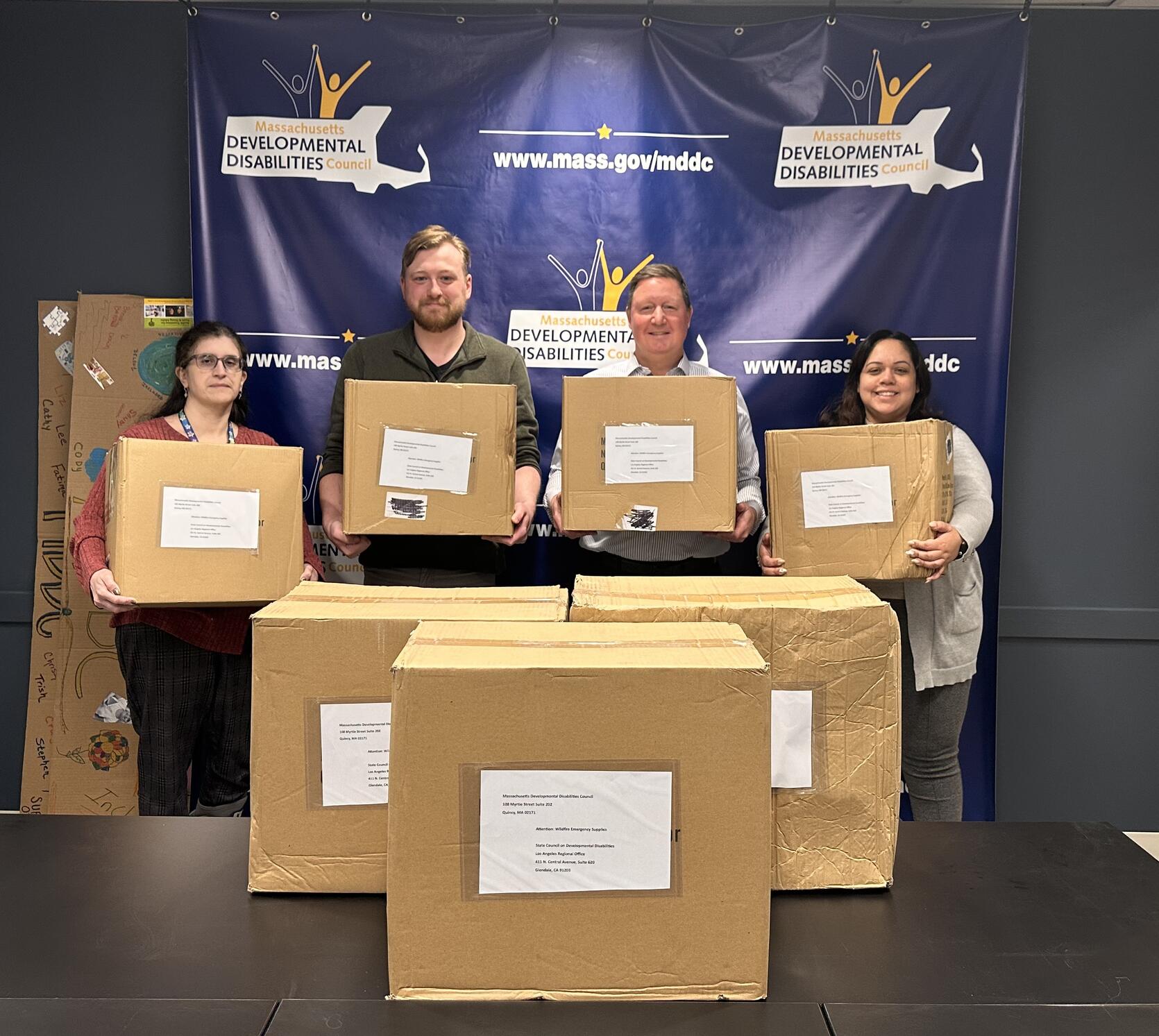- Massachusetts Developmental Disabilities Council
Media Contact
Jackson Crilley, Communications Coordinator

Quincy, Mass. — The Massachusetts Developmental Disabilities Council (MDDC) has sent nearly 1,700 N95 masks to California to aid area residents affected by the ongoing wildfires on Monday. These masks were shipped to the California State Council on Developmental Disabilities (CSCDD) and will be distributed to area residents with disabilities and their families.
“The MDDC recognizes the importance of supporting the CSCDD while the wildfires continue. The small, but critical importance of masks for people who have disabilities is exacerbated by the air conditions in and around the Los Angeles area. Massachusetts has always stepped up to support our colleagues across the country,” said Craig Hall, MDDC Executive Director.
“Most emergency events have a sequence of prepare-respond-recover. Since the fires are starting at different times and in different places and there’s still the potential for new fires, we find we’re responding to needs in all three stages. We’re deep in it,” said Aaron Carruthers, CSCDD Executive Director.
People with intellectual/developmental disabilities (I/DD) in California are served by a series of 21 non-profits called regional centers (RCs) that contract with the state to provide or coordinate care. Seven RCs serve the Los Angeles area, and all seven are impacted directly or indirectly. Three RCs serve fire-impacted areas: Westside RC, Lanterman RC, San Gabriel Pomona RC. The three fire-impacted RCs serve a total of 43,300 people with I/DD and their families. In an update shared by Carruthers on Jan. 11, over 1,400 RC consumers have evacuated. An estimated 100 homes of RC consumers and families have burned. One RC consumer and his father passed away in the Eaton fire.
According to information provided by the Washington State Department of Health, “Respirator masks worn correctly may provide some protection by filtering out fine particles in the smoke. Masks do not help with hazardous gases in the smoke.” As people with disabilities may be at higher risk for respiratory issues, it is important that they take all measures available to limit the inhalation of smoke particles.
Every state and U.S. territory has a Developmental Disabilities Council (DDC), and at this time each has been encouraged to provide support in any way they can. The Administration for Community Living (ACL) and the National Association of Council on Developmental Disabilities (NACDD,) both of which oversee the work of DDC’s are also working to provide support.
###
